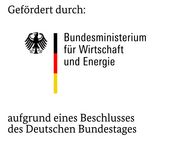The innovation competition "Artificial Intelligence as a Driver for Economically Relevant Ecosystems" (AI Innovation Competition) of the Federal Ministry of Economic Affairs and Energy (BMWi) is a first concrete step towards implementing the Federal Government's Artificial Intelligence Strategy. Within the framework of the AI innovation competition, the BMWi intends to promote outstanding approaches for new forms of AI-based platform economy in important sectors of the German economy. The aim is to realise large, assertive lighthouse projects that provide impetus for entire sectors of the economy. A total of 16 large collaborative projects emerged as winners from the competition phase and were awarded prizes in Berlin on 19 September 2019, including the SPAICER consortium, which successfully prevailed against strong, national competition and will be funded with more than 10 million euros for three years from 1 April 2020.
In addition to the German Research Center for Artificial Intelligence (DFKI), which acts as coordinator, the Machine Tool Laboratory (WZL) at RWTH Aachen University, the University of Freiburg, the Technical University of Darmstadt, the Institute for Technology and Innovation Management at RWTH Aachen University, the Otto Beisheim School of Management (WHU), deZem, Feintool, SAP, SCHOTT, SCHAEFFLER, SEITEC, SENSEERING and Waelzholz are involved in SPAICER. Over 40 associated partners support the project consortium with important practical knowledge.
In a globalized and networked economy, production interruptions, including the interruption of supply chains, have been the leading business risk for many years. The ability of a company to permanently adapt to internal and external changes and disruptions is the "search for resilience". Reinforced by a significant increase in complexity in production due to Industry 4.0, resilience management is thus becoming an indispensable success factor for production companies. The SPAICER project develops a data-driven ecosystem based on life-long, collaborative and low-threshold Smart Resilience Services by using leading AI technologies and Industry 4.0 standards with the aim of anticipating disruptions (anticipation) and optimally adapting production planning to active disruptions at any time (response) .
In SPAICER, AI technologies are transformed into Smart Resilience Services (SRS) with a clear value proposition, integrated into production environments and networked with each other. To ensure the reusability of SRS and the exchange with partners (SRS ecosystems), platforms are developed and operated according to different "Industry 4.0" standards on existing base platforms. To achieve this goal, (1) machine learning methods (ML) are particularly suitable for deriving forecasts and recommendations for action from data, and (2) formal planning and inference methods (PI) for the controlled application of structured knowledge. The combination of these two worlds is one of the most active areas of AI research. Since changes in production planning have far-reaching, entrepreneurial effects, they must be worked out interactively in collaborative environments together with production experts and decision-makers via natural-language interfaces (Explainable AI). At the architectural level, SPAICER will investigate hybrid AI-oriented architectures, which distribute SRS to edge devices (including production machines) and cloud environments in an optimized way according to their performance and data protection requirements.
Partners
- Werkzeugmaschinenlabor WZL der RWTH Aachen
- Institut für Technologie- und Innovationsmanagement (RWTH Aachen)
- senseering GmbH
- Mendritzki Holding GmbH & Co. KG
- SAP AG
- Deutsche Bahn AG
- Feintool System Parts Jena GmbH
- Technische Universität Darmstadt
- SEITEC GmbH
- deZem GmbH
- Schott AG
- Uni Freiburg
- WHU - Otto Beisheim School of Management


